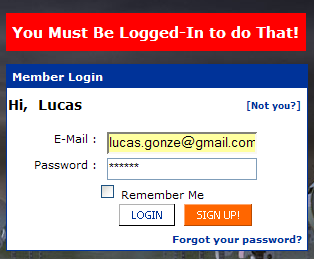I’ve been thinking about way to do music distribution where people don’t have to host files.
Specifically, with a player like Songbird you could make an XSPF playlist that you could then send or post somewhere. On the other end people receive the playlist and find the audio using search engines, downloading from artists’ websites or buying.
…
Pros: no one gets sued, bands that host their mp3s retain ownership on the data about who is listening to them
Cons: at this point it’s too much work for the benefit.
About the amount of work for the recipient, it’s true that On the other end people receive the playlist and find the audio using …
, but this doesn’t mean that the recipient manually tracks down every file. The XSPF plan is for the recipient to have a piece of software which knows how to locate the tracks automatically given a minimal amount of guidance from the user; this relies on the sender to provide enough metadata to support an automated search.
As it stands people share music references by uploading their own rips to a hosting service. That ensures that the songs they have in mind are globally available. This is a reliable process which is easy to figure out: rip, upload, send the URL via email or web. Most of the time the sender doesn’t even need to rip, since they were listening to an MP3 in the first place.
What are the drawbacks of this process?
* It’s inconvenient to have to upload. But not *that* inconvenient. And it’s getting easier all the time. I’d be surprised if there isn’t client software which integrates everything about the process.
* The media URLs go 404 pretty quickly because of takedown requests and the general instability of life in the underground.
* The file hosts are often sleazy.
Anything else? If the plan is to compete with file hosting, that’s not much to work with.
Greg’s comment in the Attributor thread comes to mind:
Content trackers get it from all sides. In the new Hype Machine redesign, a fear of the record labels is plain as day. And, in reducing access to mp3s — de-emphasizing playlist-access, etc. — they’ve greatly angered many of their users (they’ve actually done a good job responding to the feedback and so have moved to reinstate some of these types of features in the weeks since the relaunch).
It seems to me that content trackers are going to have to become diplomats. Stuck between the copyright holders and the users they have three choices: 1) Take the side of the users, a la The Pirate Bay: ‘User experience is all, quaint local copyright custom be damned!’; 2) Take the side of content holders, a la Attributor: ‘I’m taking my ball and going home; and if you don’t like it, taste the business end of my 1000 staff lawyers!’; 3) Find a third way that tries to negotiate a peace between both sides. This third option is the one that is the least obvious, but also, I think, holds the most business opportunities: if you grant both sides the right to exist, and take it as a given that both have demands that need meeting, you have twice the number of possible products and you stand to be in the best position to participate in really sustainable solutions that constitute wins for all sides.







